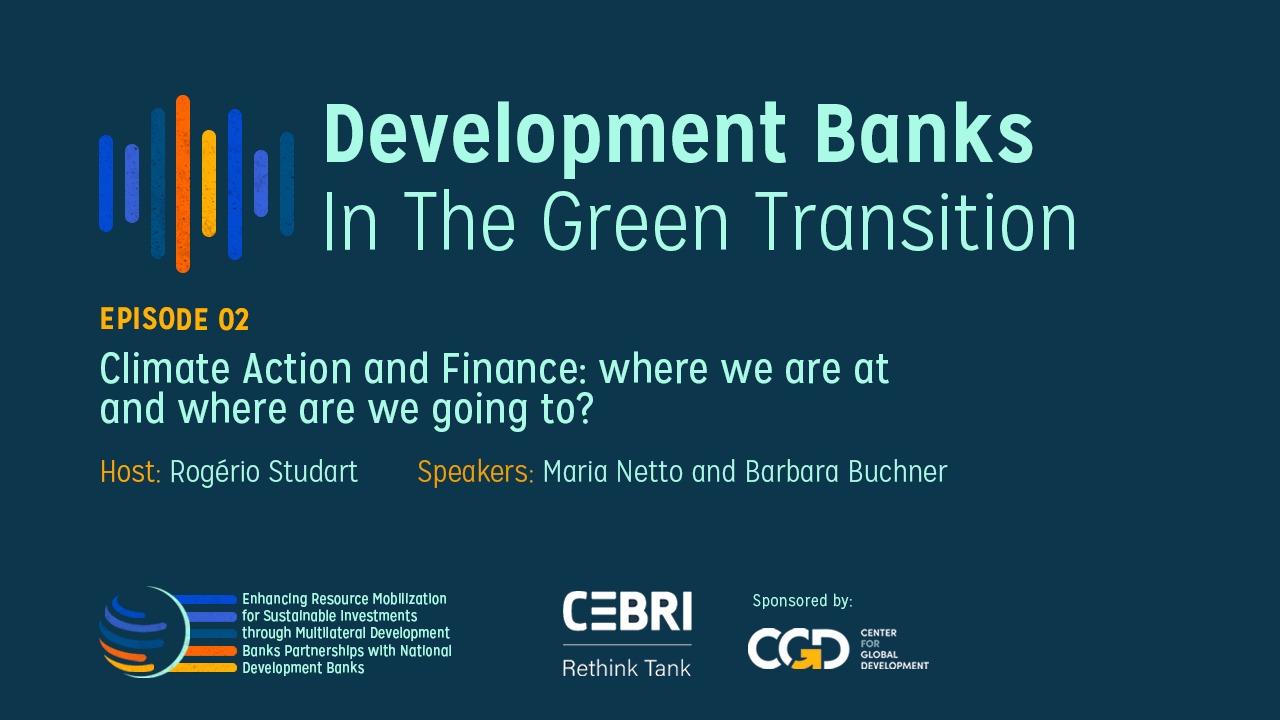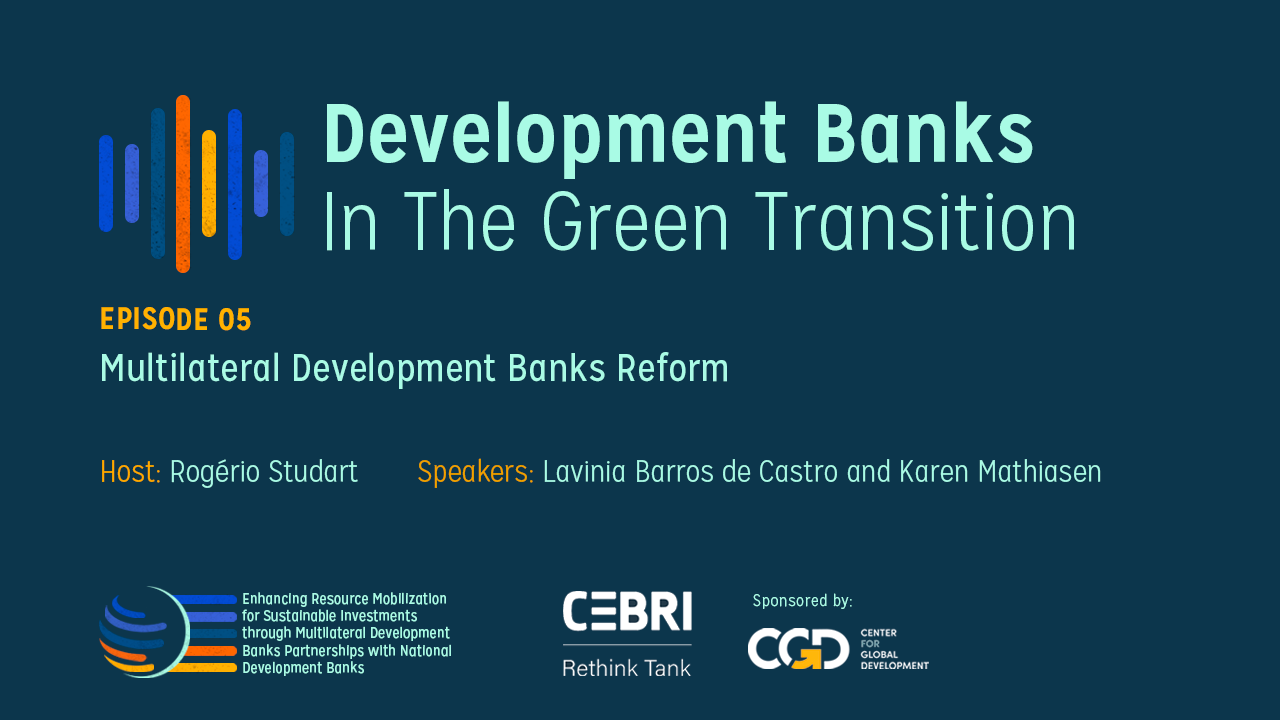CEBRI launches a series of talks “Development Banks in the Green Transition”
- 04 december 2024
In discussions about reforms in multilateral institutions, there is pressure for organizations like the World Bank to broaden their focus on sustainable development. However, the financial needs to achieve these goals far exceed the capacities of the Multilateral Development Banks (MDBs). In this context, how can the guidelines of international banks be aligned with the available capital of national investment banks and their knowledge of national contexts?
To explore the topic, CEBRI is launching its new podcast: “Development Banks in the Green Transition”. This podcast is a product of the project "Enhancing Resource Mobilization for Sustainable Investments through Multilateral Development Banks Partnerships with National Development Banks," a partnership between the Brazilian Center for International Relations (CEBRI) and the Center for Global Development (CGD).
In six episodes, Rogério Studart, Senior Fellow at CEBRI, welcomes national and international guests to discuss the nuances of the green transition, sustainable development, the role of finance in promoting it, and particularly how development banks, working together, can help accelerate such a transition.
EPISODE 1
In the first episode of the podcast "Development Banks in the Green Transition," Rogério Studart, Senior Fellow at CEBRI and macroeconomics specialist, engages in a discussion with experts Paulo Gala, an economics professor at FGV-SP, advisor at FIESP, and chief economist at Banco Master, and Ha-Joon Chang, professor and co-director of the Centre for Sustainable Structural Transformation (CSST) at SOAS University of London. The debate delves into the transformations that climate change brings to our understanding and discussion of development, addressing green industrialization as a potential new path for development and the global and national challenges Brazil faces in adopting a new green industrial policy.
Watch on Youtube HERE.
Listen on Spotify HERE.
EPISODE 2
In the second episode of the podcast "Development Banks in the Green Transition," Rogério Studart, Senior Fellow at CEBRI and macroeconomics expert, speaks with Maria Netto, Executive Director of the Institute for Climate and Society and Senior Fellow at CEBRI, and Barbara Buchner, Global Managing Director of the Climate Policy Initiative, recognized as one of the 20 most influential women in the field of climate change. The discussion centers on the need for transformative investments to ensure a just transition towards a decarbonized and climate-resilient economy. Topics such as the readiness of financial markets to provide adequate funding, emerging trends in climate finance, and the role of development banks in promoting innovative solutions to attract more resources are explored in depth.
Watch on Youtube HERE.
Listen on Spotify HERE.
EPISODE 3
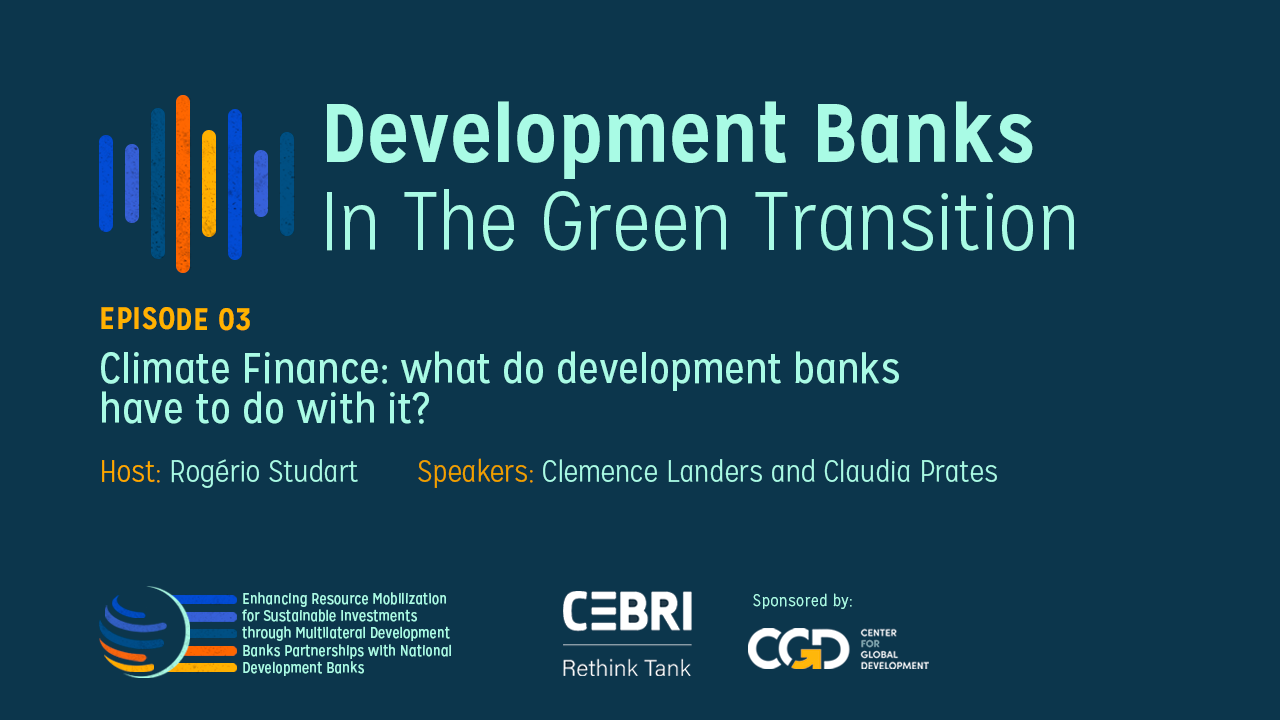
Listen on Spotify AQUI.
EPISODE 4
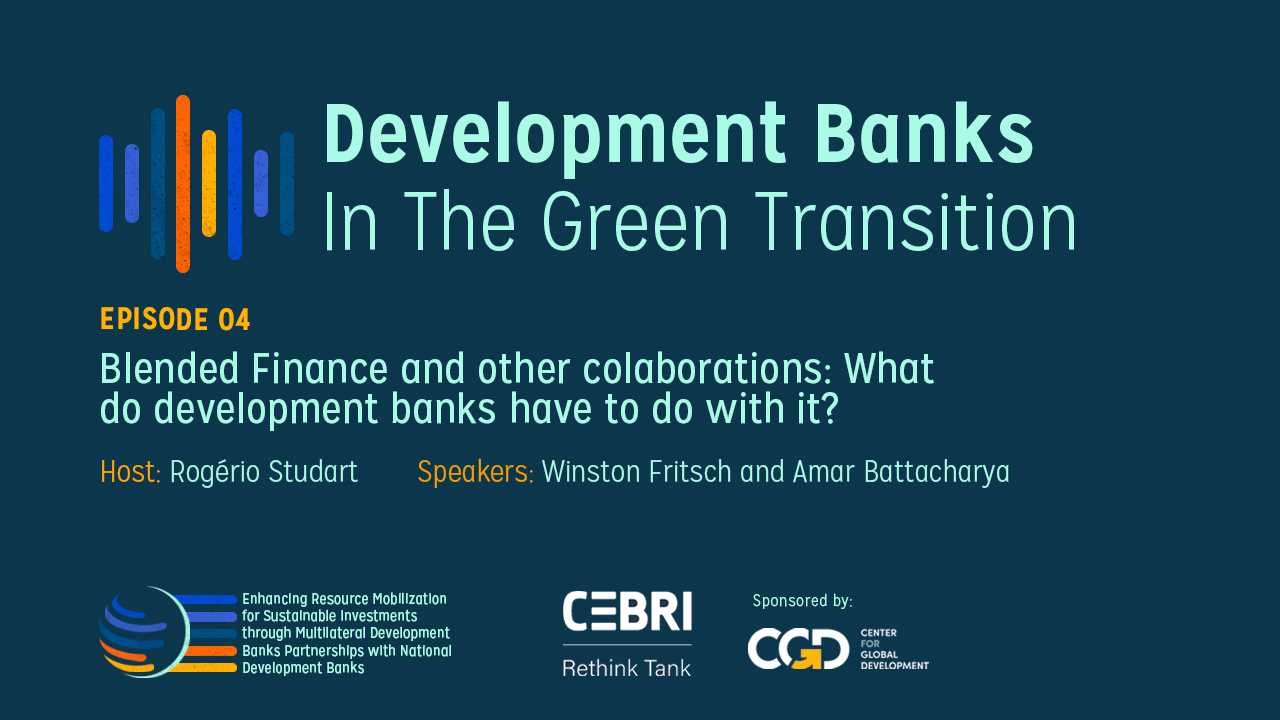
EPISÓDIO 5
In the fifth episode of the podcast Development Banks in the Green Transition, Rogério Studart, Senior Fellow at CEBRI, engages in conversation with Lavinia Barros de Castro, Advisor to the Presidency and member of the Strategic Affairs Committee at the Brazilian Development Bank (BNDES), and Karen Mathiasen, Project Director at the Center for Global Development (CGD). The discussion delves into the reform of multilateral development banks and the urgent need to mobilize resources for climate adaptation and economic development.
Watch on Youtube HERE.
Listen on Spotify HERE.
EPISODE 6
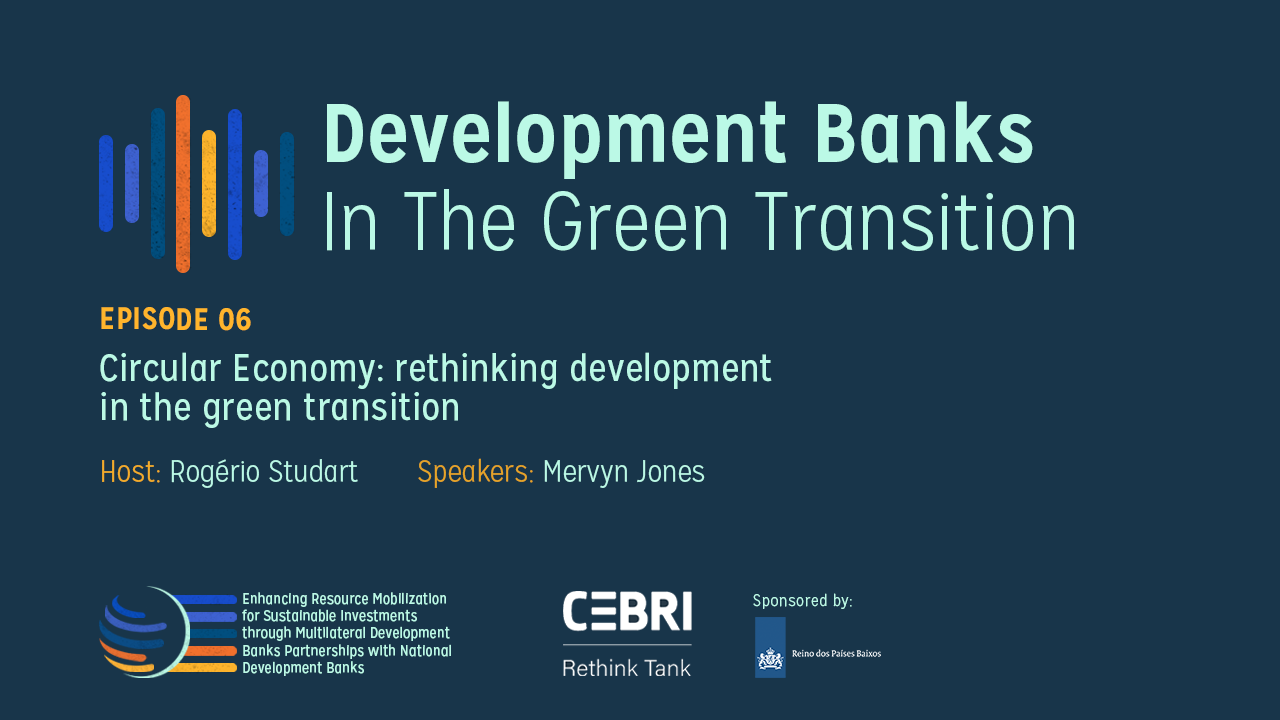
In the final episode of the series Development Banks in the Green Transition, Rogério Studart, Senior Fellow at CEBRI, and Mervyn Jones, Senior Advisor on Circular Economy at the Ministry of Infrastructure and Water Management of the Netherlands, delve into the concept of the circular economy and its practical impact on daily life. The discussion highlights the importance of this approach in driving the transition to a greener economy and explores actions that cities and municipalities can take to leverage public investments and maximize the benefits of the circular economy at the local level.
Watch on Youtube HERE.
Listen on Spotify HERE.
.png)
